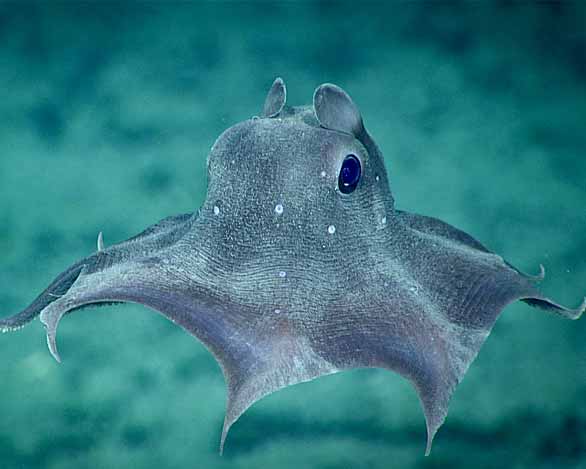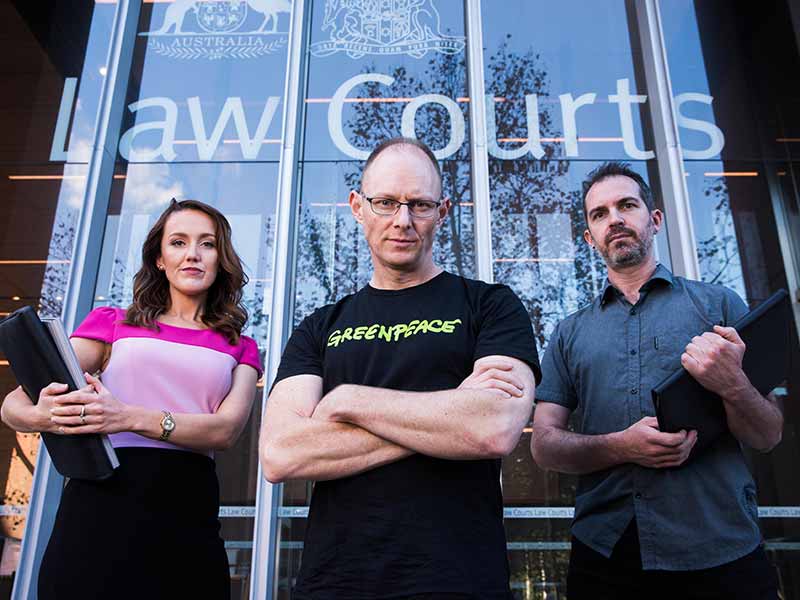Friend, it's a life or death deadline for the Deep Sea A life or death deadline for the Deep Sea
The Metals Company wants to rip up the Pacific Ocean floor for minerals and profit, risking ocean life.
This July, governments get the chance to stop deep sea mining at a critical meeting - it's our best chance to stop it before it starts.
Friend, will you help us fight this threat?Will you help us fight this threat?
I would like to give:
Your account will be debited today, then every subsequent 4 weeks. Get in touch with us to arrange an alternative date.
In making a donation to Greenpeace Australia Pacific, you will be providing us with your personal information. We may use your information to enable us to process your donation, communicate with you about your donation and inform you about our campaigns. Your information is safe and secure with us – for more information please see our Donor Collection Notice and Privacy Policy.
Your generous tax deductible gift helps fund our campaigns for a better and greener future.
In making a donation to Greenpeace Australia Pacific, you will be providing us with your personal information. We may use your information to enable us to process your donation, communicate with you about your donation and inform you about our campaigns. Your information is safe and secure with us – for more information please see our Donor Collection Notice and Privacy Policy.
Help stop deep sea mining before it starts
The Metals Company are trying every trick in the book
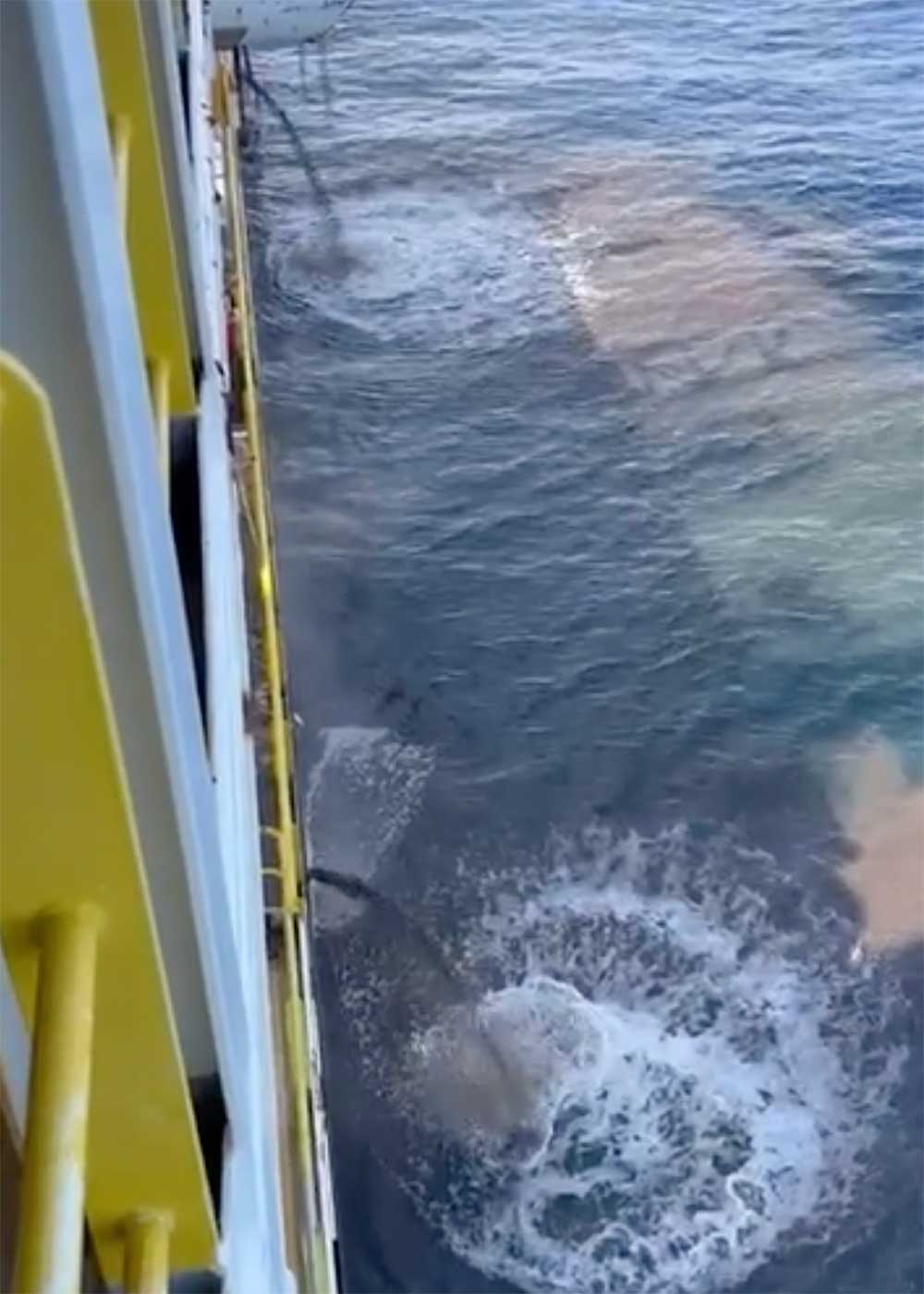
The Metals Company's ship dumping waste that could potentially smother and poison sealife for kilometres
The Metals Company are using a campaign of deceit and deception to influence governments and local communities.
The Metals Company (TMC) is pushing to be the first deep sea mining business to gain approval to mine in the Pacific.
Their ships are already in the East Pacific conducting tests. Greenpeace released a video of TMC’s ship dumping waste that could potentially smother and poison sealife for kilometres. TMC rejected the evidence stating it was "taken out of context". This is false.
There's even more. Promises of more jobs and economic benefits are being used to lure Pacific communities in. We cannot wait and watch The Metals Company effectively manipulate governments into an environmental disaster.
Friend, please donate today. We need to keep mining companies' hands off the Pacific and oceans around the world. Please donate today. We need to keep mining companies' hands off the Pacific and oceans around the world.

The Metals Company's ship dumping waste that could potentially smother and poison sealife for kilometres
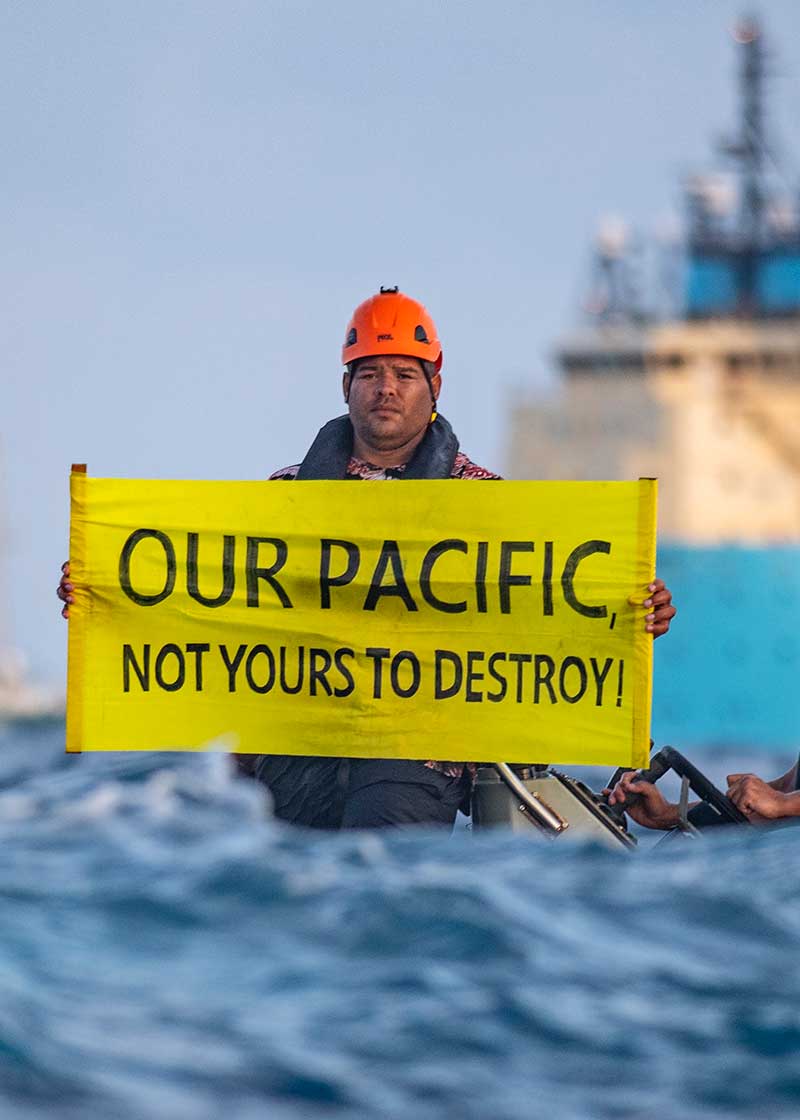
A wave of destruction is headed for the Pacific
If The Metals Company's deep sea mining plans go ahead, our Pacific neighbours will be the first to experience the untold damage deep sea mining will wreak on the environment. And they won’t be the last.
For communities whose connection to the ocean is ingrained in their culture, deep sea mining threatens not only their livelihoods but their very identities as Pacific peoples. It is a catastrophe waiting to happen. And, in this era of climate emergencies, it’s the last thing our planet needs.
As the Pacific’s closest neighbours and allies, Australians must make sure that Pacific voices are heard loud and clear.

"If anyone's going to win this fight, it'll be the Pacific"
SHIVA GOUDEN, HEAD OF GREENPEACE PACIFIC
We have to stop them before they start
Corporations want to start destroying precious marine habitat for profit.
The July deadline means life or death in our oceans. Together, we can take a decisive stand against deep sea mining.
The race is on to turn the tide against deep sea mining
2025 is a pivotal year for the oceans, and the next few months are critical ahead of the July International Seabed Authority (ISA) Assembly where governments will decide whether to stop deep sea mining or not.
When we work together, we win
We are a multi-million strong movement. Thanks to people like you Friend, Thanks to people like you, we stopped deep sea mining in the Arctic. Now is the time to do the same, right here in our Pacific region. We require urgent funding to confront powerful players like The Metals Company on the frontlines.
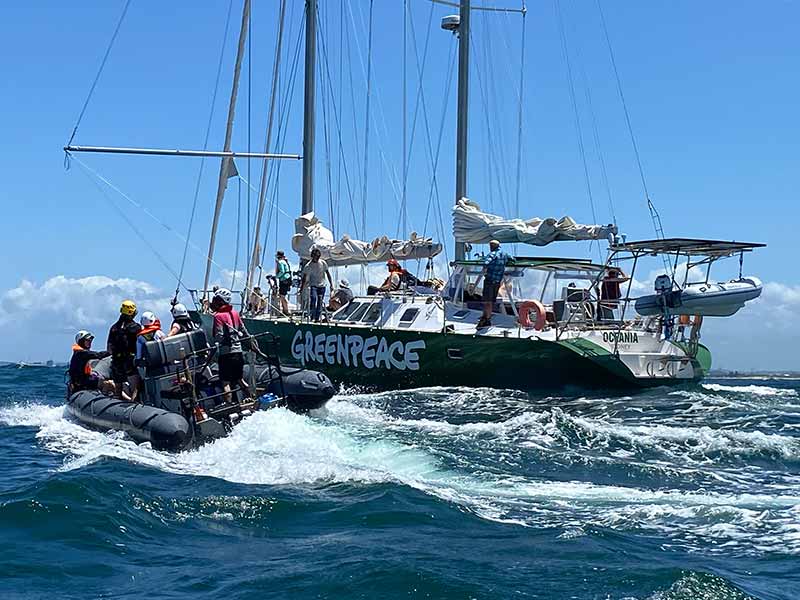
 Monitor ships at sea:
Monitor ships at sea:
We know The Metals Company ships are at sea in the Pacific running exploratory tests. We must keep them accountable.
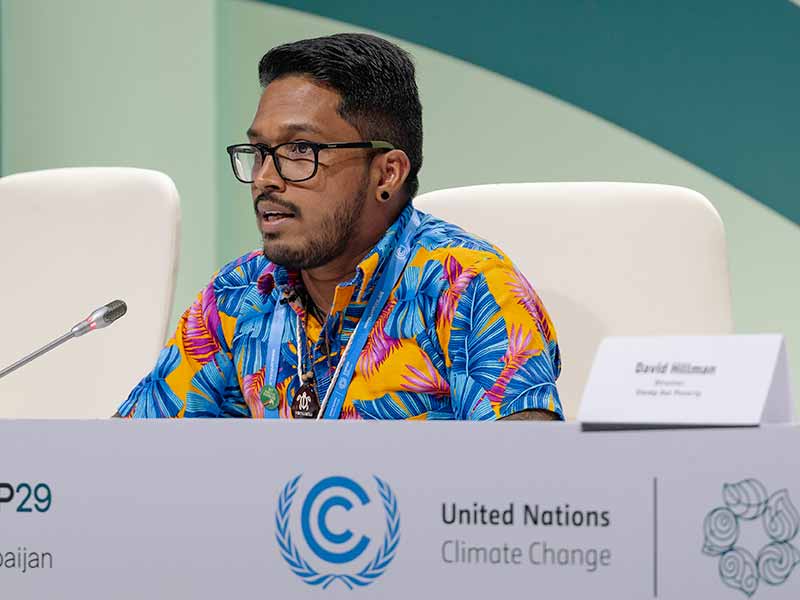
 Mobilise Pacific leaders:
Mobilise Pacific leaders:
We’re working tirelessly to change the minds of Pacific leaders who are on the fence about deep sea mining. Without a united Pacific voice we will not win.
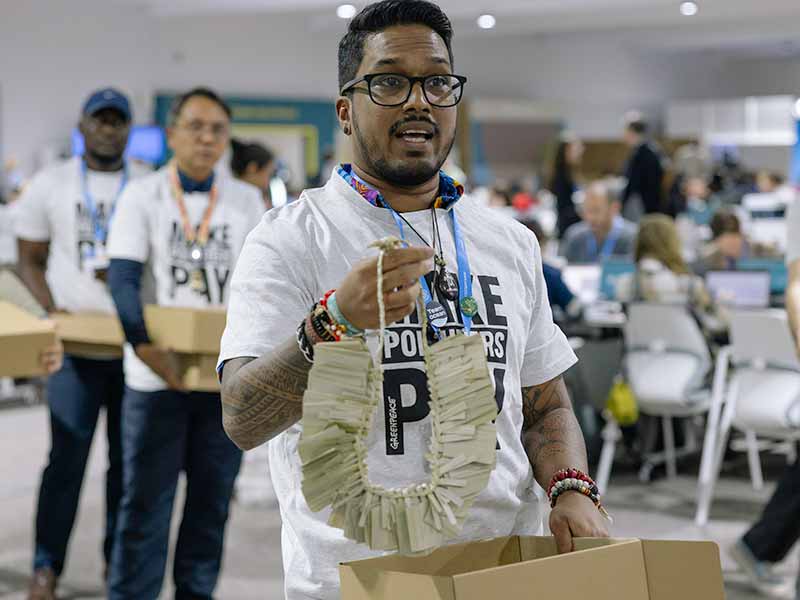
 Empower Indigenous voices:
Empower Indigenous voices:
We’re working directly with local communities, ensuring the people whose livelihoods are at risk have a platform at global forums.
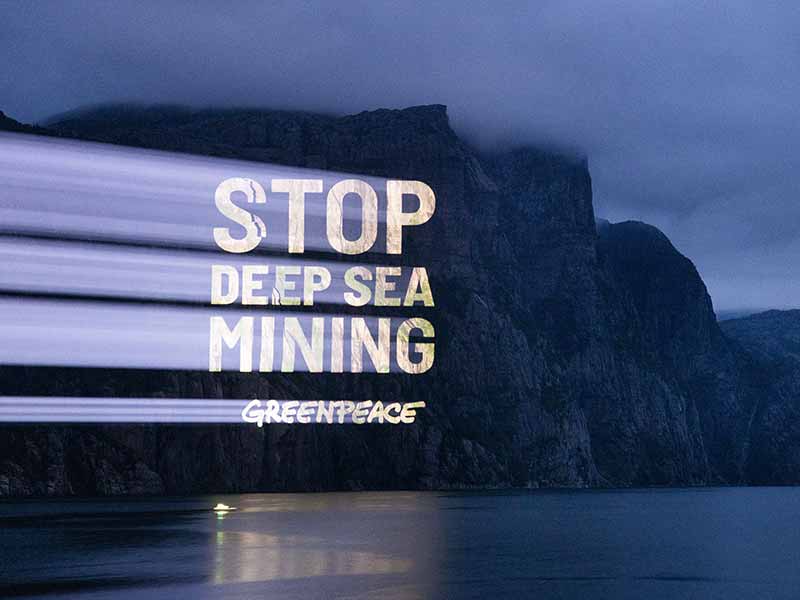
 Raise global awareness:
Raise global awareness:
We’re using campaigning, activism and scientific expertise to shine a spotlight on the issue, making it impossible for decision-makers to ignore.
The fight is far from over. We can’t do it without you Friend
Deep sea mining myths exposed
The Metals Company claim that mining the deep sea is necessary to extract rare earth minerals such as cobalt, nickel and manganese to boost the production of renewable technologies and fight climate change. This is false.
The ocean is already protecting us from an immediate climate catastrophe, absorbing vast amounts of carbon dioxide. Destroying the seabed could trigger a chain reaction that accelerates climate breakdown.
Recent studies state that demand for rare earth minerals can be kept within terrestrial limits. A reduction in demand is possible with increased material efficiency and recycling.
At the same time, advances in technologies like cobalt and nickel-free batteries and hydrogen fuel cells are gradually reducing our dependence on finite resources to power the energy transition.
Harvesting minerals from the ocean floor destroys fragile ecosystems that have taken millennia to form. Dredging the seabed stirs up toxic sediment plumes that spread for kilometres, smothering marine life.
Unlike land-based mining, where some rehabilitation is possible, damage to the seafloor is irreversible. Coastal communities who rely on healthy oceans will face dire risks due to declining fish stocks and disrupted ecosystems.


